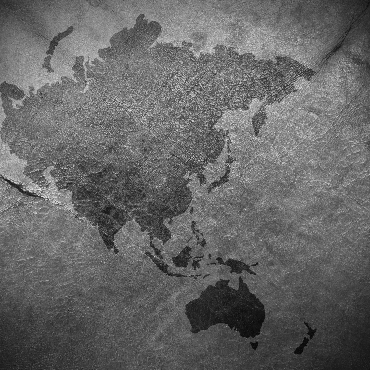SPY CHIEFS WARN OF CHINESE ESPIONAGE ON AN "EPIC SCALE"
The intelligence chiefs of the Five Eyes alliance (the U.S., UK, Australia, Canada, and New Zealand) gathered at Stanford University to warn about the unprecedented scale of China's espionage. "China has made economic espionage and stealing others' work and ideas a central component of its national strategy," said FBI Director Chris Wray. There are more than 2,000 current FBI investigations linked to China. More than 20,000 people in the UK have been approached online by China's spies, said Ken McCallum, the head of MI5, who warned that British businesses are at risk of having their innovation stolen. "All nations spy, but the behavior we are talking about here goes well beyond traditional espionage," noted Mike Burgess, the head of Australia's security service. (BBC, October 18, 2023)
CHINA, PAKISTAN SIGN $7 BILLION RAIL DEAL
China and Pakistan have signed a much-delayed deal for the $7 billion Mainline-1, or ML-1, railway project, which will stretch more than 2600 km from Peshawar to Karachi. The project, which is expected to take 16 years to complete, will increase capacity from 34 to 134 trains each way per day and double their speed to 165 km per hour. The rail deal, which is a critical part of the China-Pakistan Economic Corridor (CPEC), was inked along with several other MoUs on the sidelines of the recent Belt and Road Forum (BRF) in Beijing. Islamabad hopes the ML-1, which will connect Xinjiang to markets in the Middle East and Europe, will boost Pakistan's industry and manufacturing. The CPEC is a $65 billion loan program of Chinese financing for road, rail, energy, etc. in Pakistan. (VOA, October 18, 2023)
BEIJING ELEVATES TIES WITH TALIBAN AT BRF
The Taliban's minister for commerce and industry, Haji Nooruddin Azizi, attended the BRF to expand bilateral ties between China and Afghanistan. At the Forum, the highest-profile multilateral summit the Taliban has attended since its return to power in Afghanistan in 2021, the minister "invited large investors" into the country. The impoverished nation has a wealth of coveted mineral resources, from copper to gold and lithium, but it remains unclear how to extract that wealth. In Beijing, Azizi also spoke with Chinese interlocutors about building a road through the Wakhan corridor – a thin, mountainous strip in northern Afghanistan – to connect the two countries. Last month, the Chinese ambassador to Kabul formally presented his credentials to the Taliban. (Reuters, October 14, 2023)
SRI LANKA REACHES $4.2 BILLION DEBT DEAL WITH CHINA
Sri Lanka has reached a deal with China to restructure $4.2 billion in debt. "We thank China Exim bank for the support in resolving our country's debt situation. This agreement constitutes a key milestone in Sri Lanka's ongoing efforts to foster its economic recovery," Sri Lanka's Finance Ministry said in a statement, which gave no details on the new terms. Sri Lanka has foreign debt of $46.9 billon, 52% of which is owed to China, its largest lender. Reaching deals with creditors will allow Sri Lanka to keep accessing funds from a $3 billion bailout program from the International Monetary Fund. (BBC, October 13, 2023)
CHINA OFFICIALLY RENAMES "TIBET" AS "XIZANG"
China has formally replaced the name "Tibet" with "Xizang" on all official diplomatic documents. The United Front Work Department of the CPC announced that "there is no more Tibet in the official documents of the Chinese Ministry of Foreign Affairs." Chinese experts argue the term "Tibet" is geographically misleading and that changing it will help enhance China's international voice on Tibet. China's official media outlets have used "Xizang" instead of "Tibet" since 2019. "These are political actions of 'de-ethnicization,'" explains Yang Haiying, a professor at Shizuoka University in Japan. (RFA, October 12, 2023)
Want these sent to your inbox?
Subscribe
China Policy Monitor No. 1571
Related Categories:
Democracy and Governance; Economic Sanctions; Human Rights and Humanitarian Issues; Intelligence and Counterintelligence; International Economics and Trade; Islamic Extremism; Public Diplomacy and Information Operations; Resource Security; Afghanistan; Australia; Canada; China; New Zealand; Pakistan; Sri Lanka; United Kingdom ; United States




